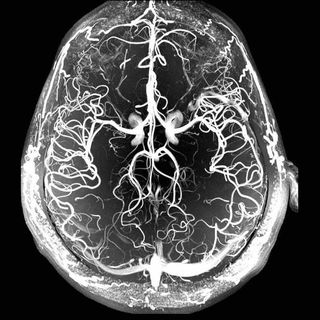
Why Some Women Have Difficulty Losing, Gaining Weight
Women have certain genetic twists that aren’t found in men.

Weight: It’s a topic most women struggle with at some point in their lives. If not with their personal number on the scale, then with the constant barrage of messaging from advertisements and media urging us toward weight loss, telling us we need to be thinner — but not too thin. As if that happy medium were that easy to achieve. As if that happy medium were an actual achievement.
Yes, society puts pressure on women regarding their weight, but it’s also interesting to talk about the biology that underpins this struggle. Understanding that, after all, will help women take more control over their size, or understand why their size is outside their control. And two recent studies are particularly interesting: One explores why weight loss is so difficult for some women, and one explores why it weight gain is a problem for others.
The first study, published in the journal Nature Genetics, found that a natural variation of the gene KLF14 causes some women to store hip and belly fat, putting them at significantly increased risk of type 2 diabetes.
Cruelly, the gene is sex specific: Men with the same variation of the gene have much less-heightened fat storage and diabetes risk. And some women with the variation are spared as well, depending on whether they received the gene from their mothers or their fathers.
“If you, by chance, inherit the risk version of this gene from your mother, then you’re at higher risk for type 2 diabetes,” explained researcher Mete Civelek, PhD, of the University of Virginia School of Medicine. “If you’re a woman, then your risk is even higher — 28% higher than for a man who inherited the gene from his father. For reasons that we still do not understand, this gene is more active, or increases risk more, in women than in men.”
Until now, research into the genetic factors determining diabetes risk has pointed to genes’ effects on the pancreas and the insulin it produces. But the new finding reveals that fat, too, can be a culprit. In this case, the gene variation has dramatic effects on the women’s hip and belly fat, causing the fat cells there to become larger but fewer.
“This gene is active only in fat tissue and no other tissue when it comes to its effect on type 2 diabetes,” said Civelek, of the university’s biomedical engineering department and its Center for Public Health Genomics.
The defect in the creation of the fat cells means that the women’s bodies are more likely to have problems using blood sugar, the researchers found. And the gene variation has effects on hundreds of other genes as well, causing a cascade effect that the researchers have not yet fully charted.
The finding was a bit of a surprise for the scientists, as this gene’s affect on fat has nothing to do with overall body fat, or BMI, but only with fat distribution specifically in the abdomen and hips, which has long been known as a risk factor for diabetes.
The researchers are quick to point out that this genetic quirk is not an inevitable health sentence.
“You can’t change your genetics,” Civelek said. “But you can change your diet and exercise.”
On the flip side is research just published in the journal Nature Communications, which explores why it’s difficult for women to gain weight compared to men.
For years, scientists have observed that when male and female mice eat the same high-fat diet, the males gain significantly more weight than the females. Mice are, of course, very different from humans, which means that this research is years away from actual applicability in humans; but mice share enough similarities in their physiology and brain structure that findings in experiments on the animals often point researchers in the right direction when it comes to humans.
This disparity in weight gain has been known for a long time, but without understanding what causes is. Most scientists operate on the assumption that different sex chromosomes and sex hormones are behind this difference in weight control.
“Differences in sex chromosomes and in sex hormones are important, but we have always wondered whether there is a third group of factors that may also contribute to the sex differences in the ability to regulate body weight,” said senior author Dr. Yong Xu, an associate professor of pediatrics and of molecular and cellular biology at Baylor College of Medicine and Texas Children’s Hospital. “We think ours is among the first studies looking at the brain to understand weight control differences between males and females.”
The brain’s role in weight control has been the subject of much recent research, some of which has revealed certain neuron clusters play a major role in weight control. So that’s where Xu’s team started looking for differences. One specific set, POMC neurons, is known to help maintain body weight by suppressing appetite and helping the body burn energy in response to chronic, high-fat eating. The researchers tested the rate at which POMC neurons fired electrical signals.
“One of the most important functions of all neurons is firing electrical signals. That’s how neurons talk to each other and to other tissues,” Xu said.
What they found was in female rats, POMC neurons fire faster than the same kind of neurons in male rats. They linked it to a gene, which like KLF14, works differently in males and females. In this case, the gene is known as TAp63, and when researchers inhibited it within the POMC cells, not only did female rats become as obese as their male counterparts, the firing activity of female POMC neurons diminished to the rate of male’s.
The findings of both studies are a long way off from affecting daily, human life; much of what we know about genetics has yet to translate into informed advice or effective treatment. But this research does give scientists a starting point in their work toward preventative and/or targeted treatments for weight-related diseases like obesity and diabetes. It’s also a hint to the rest of the world that a woman’s weight is between herself and her genes — and no one else.
Related


Same Brain Structures Linked to Both Obesity, Depression in Children
